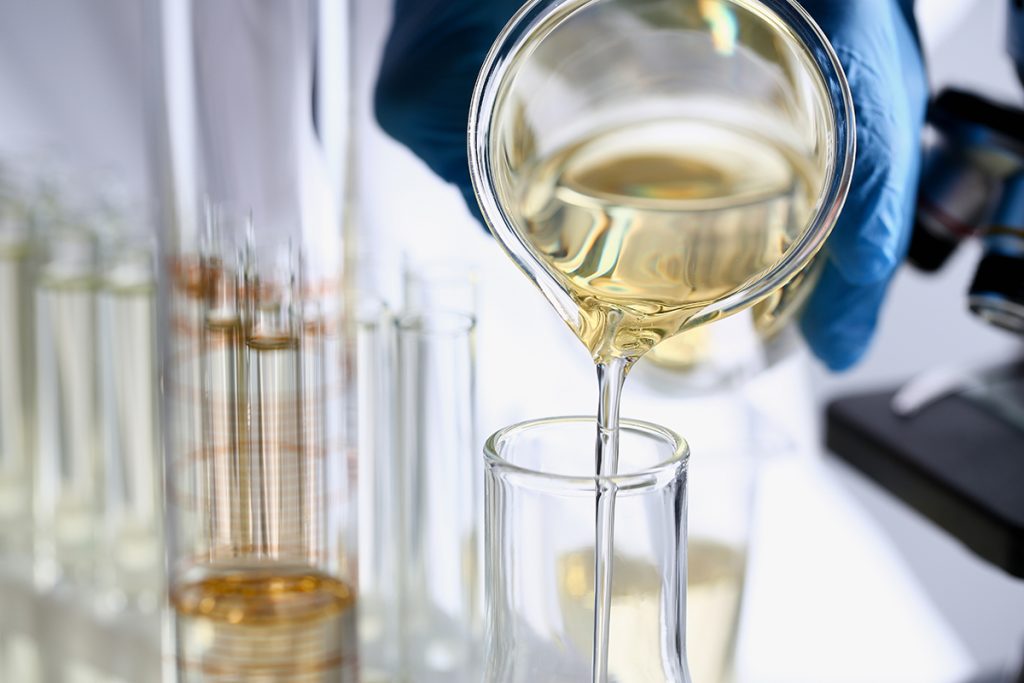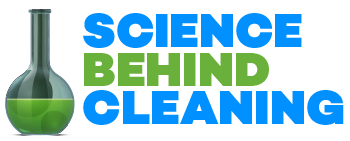
A solvent is any substance that dissolves another substance. For example, water is called the “universal solvent” because most materials dissolve in water to some degree. However, when it comes to cleaning, water alone is not always enough. Oily, greasy stains and soils have limited solubility in plain water, so other materials such as surfactants and solvents are added to improve performance. Some solvents, such as short chain alcohols and glycol ethers, readily dissolve in water, creating a water-based solution that effectively penetrates and breaks down oily soils. Other solvents, such as d-limonene and pine oil, require the use of special surfactants called hydrotropes that will solubilize and stabilize these solvents in an aqueous dilution to help deliver their performance benefit.
Solvents play an important role in the cleaning process. They break up stains, dissolve soil particles, and help prevent grimy residue from returning on freshly scrubbed surfaces. Solvents are present in many common cleaning products, including:
- Spot treatments for carpet
- Degreasers
- Furniture dusting/polishing aids
- Tub and tile cleaner
- Glass cleaners
Solvents are also added to cleaning products for reasons other than soil removal. Solvents are used to ensure a cleaner remains properly mixed and stable during storage. Without solvents, a product may become cloudy and separate over time. Solvents are also used to adjust viscosity, making the cleaning product thicker or thinner as desired. Lastly, solvents help surfaces dry faster, preventing water spots on just-cleaned surfaces or preventing streaks on freshly cleaned glass, mirrors, and furniture.
